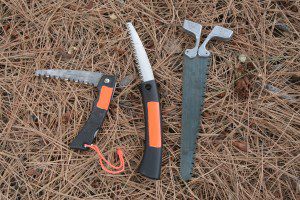It was one of those famous “three little word” hunts – “I am just” (that’s three words) going to leave camp for a short hunt. You know - grab the rifle, license and tags, ammo, GPS and head out for a short hunt; the hunter’s pack stayed behind. Because he was just going down that game trail a bit the hunter didn’t need all his survival gear. The hunter lost track of time and distance as he followed the fresh mule deer tracks, and, besides he had his GPS. At twilight he recognized it was time to go back, the GPS showed him the way……until the batteries died. Fresh batteries were in his pack back at camp.
I’d offer a few suggestions:
· Batteries will generally last for a reported 20 hours of continuous use; more on that shortly. If you just turn it on, mark a waypoint and turn the receiver off the batteries will last you most of the hunting season.
To read the complete post go here.

























